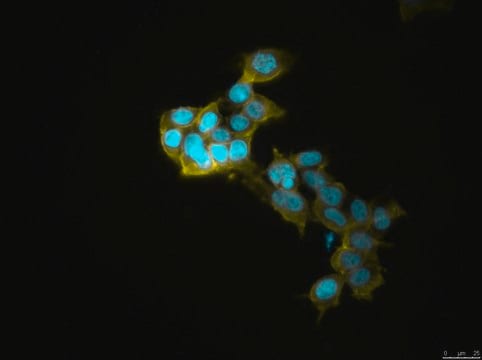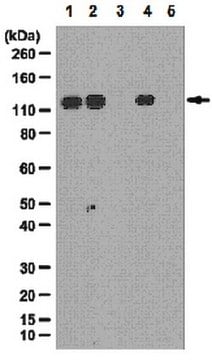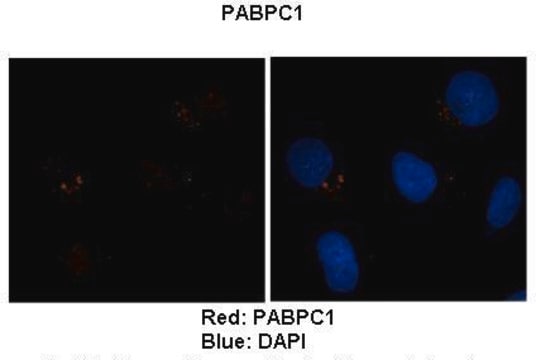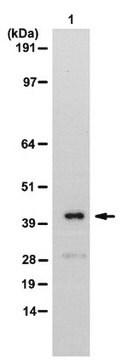04-1467
Anti-PABP 1 Antibody, clone 10E10
clone 10E10, from mouse
Synonym(s):
PABP 1, Poly(A)-binding protein 1, poly(A) binding protein, cytoplasmic 1, poly(A) binding protein, cytoplasmic 2, poly(A)-binding protein, cytoplasmic 2
About This Item
Recommended Products
biological source
mouse
Quality Level
antibody form
purified immunoglobulin
antibody product type
primary antibodies
clone
10E10, monoclonal
species reactivity
human
technique(s)
immunocytochemistry: suitable
immunoprecipitation (IP): suitable
western blot: suitable
NCBI accession no.
UniProt accession no.
shipped in
wet ice
target post-translational modification
unmodified
Gene Information
human ... PABPC1(26986)
General description
Specificity
Immunogen
Application
Cited in Thoma, C., et al. (2008) RNA. 14:1579-1589, and Buchet-Poyau, K., et al.(2007) Nuc. Acids Res. 35:1289-1300 using a representative lot.
Immunocytochemistry:
Cited in Afonina, E, et al. (1998) J. Biol. Chem., 273: 13015-21 (1998) using a representative lot.
Epigenetics & Nuclear Function
RNA Metabolism & Binding Proteins
Quality
Western Blot Analysis: 0.5 µg/ml of this antibody detected PABP 1 in 10 µg of HeLa cell lysate.
Target description
Linkage
Physical form
Storage and Stability
Analysis Note
HeLa cell lysate
Other Notes
Disclaimer
Not finding the right product?
Try our Product Selector Tool.
Storage Class Code
12 - Non Combustible Liquids
WGK
WGK 1
Flash Point(F)
Not applicable
Flash Point(C)
Not applicable
Certificates of Analysis (COA)
Search for Certificates of Analysis (COA) by entering the products Lot/Batch Number. Lot and Batch Numbers can be found on a product’s label following the words ‘Lot’ or ‘Batch’.
Already Own This Product?
Find documentation for the products that you have recently purchased in the Document Library.
Our team of scientists has experience in all areas of research including Life Science, Material Science, Chemical Synthesis, Chromatography, Analytical and many others.
Contact Technical Service








